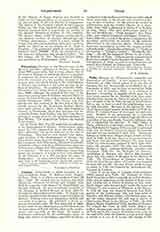

Tulasne, Louis-RENE, a noted botanist, b. at Az ay-le-Rideau, Dept. of Indre-et-Loire, France, September 12, 1815; d. at Hyeres in southern France December 22, 1885. He studied law at Poitiers, but later turned his attention to botany and worked until 1842 in company with Auguste de Saint-Hilaire on the flora of Brazil. He was an assistant naturalist at the Museum of Natural History at Paris 1842-72; after this he retired from active work. In 1845 he was elected a member of the Academy to succeed Adrien de Jussieu. Tulasne was a very industrious, skillful, and successful investigator. He published at Paris numerous botanical works, the first appearing in 1845; he first wrote on the phanerogamia, as for instance, on the Ieguminos of South America, then on the cryptogamia, and especially on the fungi. He gained a world-wide reputation by his microscopic study of fungi (the science of mycology), especially by his investigation of the small parasitic fungi, researches which threw much light on the obscure and complicated history of their evolution. In this science he worked in collaboration with his brother Charles (b. September 5, 1816; from 1843 a physician at Paris; d. at Hyeres, August 21, 1885). The chief publications issued by the two brothers are: “Fungi hypogwi” (fol., Paris, 1851), and “Selecta fungorum carpologia” (3 vols. fol., Paris, 1861-65), a work of the greatest importance for mycology, particularly on account of the splendid illustrations in the sixty-one plates. Tulasne wrote numerous mycological treatises for various periodicals such as the “Annales des sciences nat.”; “Archives du museum”; “Comptes rendus”; “Botanische Zeitung”. He left his botanical library to the Catholic Institute of Paris. Tulasne openly acknowledged his desire to glorify God by his scientific labors. Several genuses of fungi, as well as several species, are named after Tulasne, as Tulasneinia, Tulasnella.
J. S. ROMPEL.

